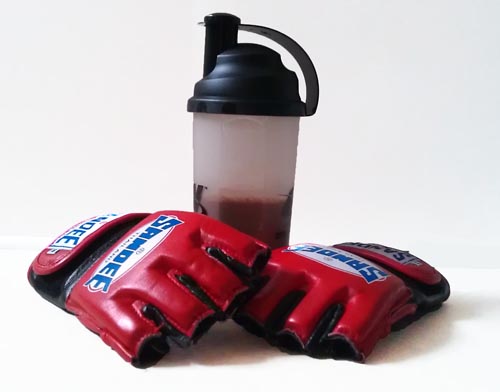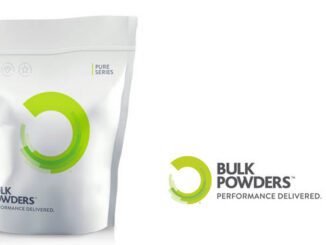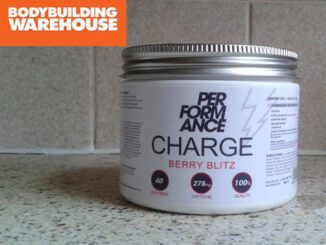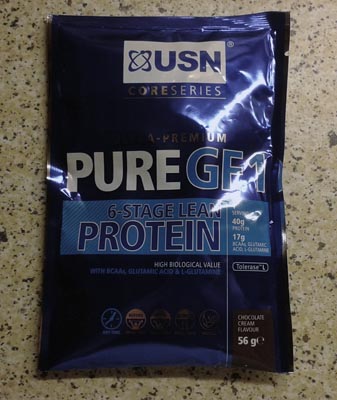
Diets that are high in protein are mainly associated with bodybuilders and strength athletes such as power-lifters and rugby players or perhaps those martial artists that fight in the heavier weight divisions. But recent research shows that protein could play a huge role in all martial artists’ nutrition and recovery regardless of weight and muscle mass. Here the Sports Nutritionists at www.theproteinworks.com explain why protein is vital to recovery and how having enough of it in the diet could in fact make you a better martial artist.
Protein is usually referred to as the ‘building blocks’ of the body mainly because it consists of combinations of structures called amino acids that combine in various ways to make bone, muscles, tendons and other tissues. Now those in the heavier weight divisions will require an adequate amount of protein for protein synthesis and to maintain a positive nitrogen balance in the body to therefore ultimately increase the size of their muscles (known as muscular hypertrophy). Regarding how much protein, The International Olympic Committee Consensus on Sports Nutrition states ‘strength athletes were recommended to consume 1.7grams of protein per kg of bodyweight per day.’ For a 100kg martial artist this equates to 170 grams of protein per day (usually broken down into 6 meals spaced roughly 2 hours apart throughout the day, each containing 28.33 grams of protein each.)
But interestingly researched conducted at McMaster University in Ontario, Canada suggests that smaller, endurance athletes (like those in the lighter weight divisions who rely on speed and endurance) may require an equal or greater amount of protein than strength or sedentary individuals to meet the needs of protein catabolism during exercise.’ (M. A. Tarnopolsky et al, 1999.) Put simply, this means because of the speed and intensity with which they train the body requires more protein to prevent it from entering into a catabolic state i.e. muscles begin to breakdown, the immune system is badly affected and injuries are more likely to occur. However having an adequate supply of protein and amino acids in your body to act as protein building blocks means that your muscles are able fully recover ready for your next session.
So to use a calculation more specific to those in the lighter weight categories and using the Olympic Nutritional guidelines (1.7grams of protein per kg of bodyweight per day) a 80kg fighter, training 90 minutes per day, should be consuming 136 grams of protein (broken down into 6 meals spaced roughly 2 hours apart throughout the day, each containing 22.67grams of protein) to ensure his elevated nutritional needs are met due to intense training.
Now obviously for some athletes it can be hard to meet these daily nutritional requirements and so supplementing your diet with a quality protein shake can greatly help. Fortunately, www.theproteinworks.com have a range that includes their premium grade, single source Whey Protein 80 (concentrate) available for as little as £9.99 or their best-selling All-in-One formula THE WORKS™, £19.99 for 1kg
References: Short, S.H. and Short, W.R (1983) 'Four-year study of university athletes' dietary intake' 1983 Jun;82(6):632-45. Economos, D.D. Bortz, S.S. Nelson, M.E (1993) 'Nutritional practices of elite athletes. Practical recommendations.' Journal of Sports Medicine 1993 Dec;16(6):381-99. Paul GL. Dietary protein requirements of physically active individuals. Sports Med 1989; 8:154-176. Boirie, Y., et al., "Slow and Fast Dietary Proteins Differently Modulate Post-Prandial Protein Accretion," Proc Natl Acad Sci 94 (1997) : 14930-5. Dangin, M., et al., "The Digestion Rate of Protein Is an Independent Regulating Factor of Post-Prandial Protein Retention," Am J Physiol (Endocrinology & Metabolism) 280.2 (2001) : E340 -8. Gambelunghe, C., et al., "Physical Exercise Intensity Can Be Related to Plasma Glutathione Levels," J Physiol Biochem 57.2 (1997) : 9-14. Kerksick, C., et al., "Effects of Whey Protein Supplementation with Casein or BCAA & Glutamine on Training Adaptations II: Performance," Med Sci Sport Exer 35.5 (2003) : abstract 2204. Kreider, R., et al., "Effects of Whey Protein Supplementation with Casein or BCAA & Glutamine on Training Adaptations I: Body Composition," Med Sci Sport Exer 35.5 (2003) : abstract 2205. Leeuwenburgh, C., and Li, L.L., "Glutathione Depletion in Rested and Exercised Mice: Biochemical Consequences and Adaptation," Arch Biochem Biophys 316.22 (1995) : 941-9. Leeuwenburgh, C., and Li, L.L., "Glutathione and Glutathione Ester Supplementation of Mice Alter Glutathione Homeostasis During Exercise," J Nutr 128.12 (1998) : 2420-6. Lemon, P.W.R., et al., "Protein Requirements and Muscle Mass/Strength Changes During Intensive Training in Novice Bodybuilders," J Appl Physiol 73 (1992) : 767-7. Lemon, P.W.R., "Effects of Exercise on Protein Metabolism. In Nutrition in Sport (Maughan, R.J. [ed.], Blackwell Science Ltd., 1257-65) 2000. Sen, CK., et al., "Exercise-Induced Oxidative Stress: Glutathione Supplementation and Deficiency," J Appl Physiol 77.5 (1994) : 2177-87. Svensson, M.B., "Endogenous Antioxidants in Human Skeletal Muscle and Adaptation of Energy Metabolism: With Reference to Exercise-Training, Exercise Factors and Nutrition," Ph.D. Thesis, Karolinska Institute, Sweden, 2003. Tarnopolsky, M.A., et al., "Evaluation of Protein Requirements for Strength Trained Athletes," J Appl Physiol 73 (1992) : 1986-95. Ziemlanski, S., et al., "Balanced Intraintestinal Nutrition: Digestion, Absorption and Biological Value of Selected Preparations of Milk Proteins," Acta Physiol Pol 29.6 (1978) : 543-56.






Be the first to comment